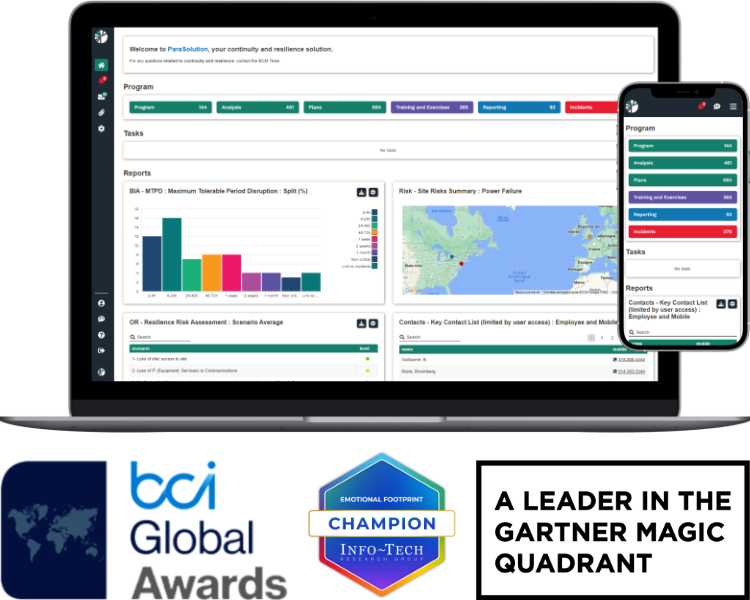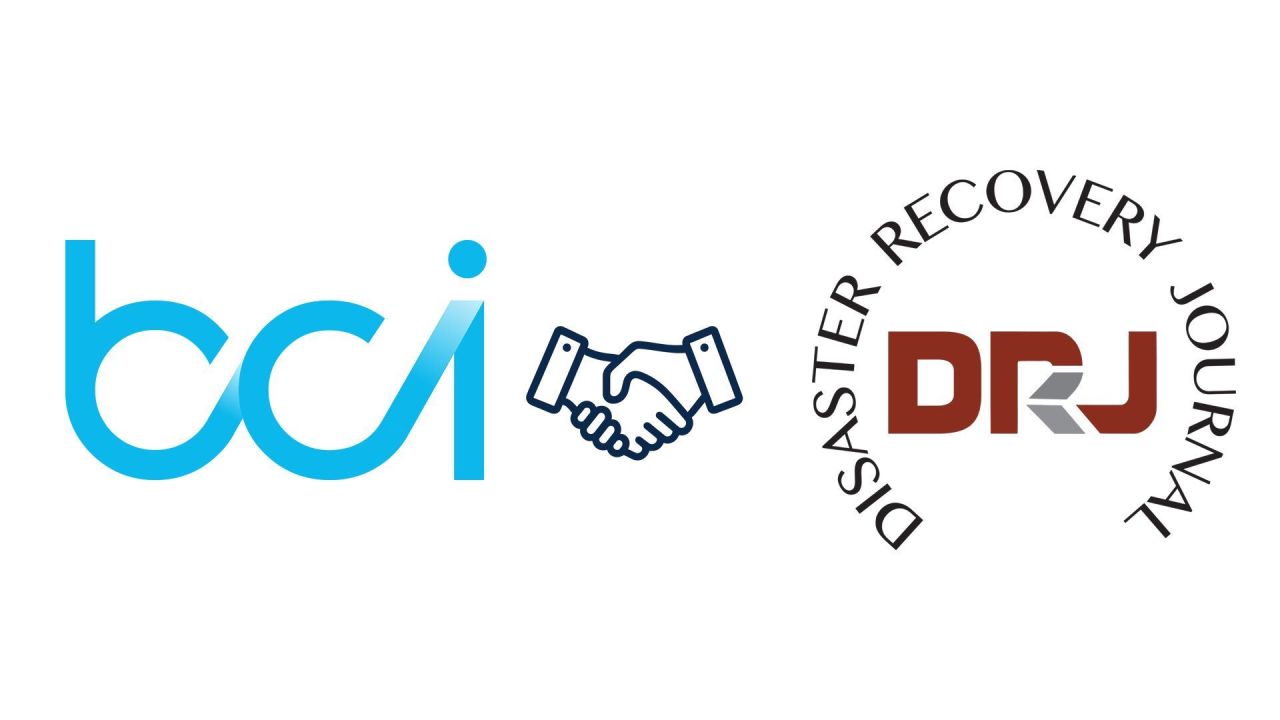Strengthen business continuity skills with BCI training and certifications in French, designed for French-speaking professionals in Europe. Learn more.
What is a Business Continuity Plan and why do you need one

What is a Business Continuity Plan?
A Business Continuity Plan (BCP) is a strategic document that outlines how an organization will continue its essential functions during and after a major disruption or crisis.
Those disruptions can include anything from natural disasters, cyber-attacks, supply chain interruptions, to even global pandemics.
Essentially, a BCP plan ensures that priority operations don't come to a halt, but rather adapt and manage through these challenging times.
According to ISO 22301, business continuity plans are” Documented procedures that guide organizations to respond, recover, resume, and restore to a pre-defined level of operation following disruption”.
Learn more on What is Business Continuity and Why is it Important?

The Components of a Business Continuity Management Program
While each Business Continuity Plan must be tailored to every organisation, some universal components are typically present when developing the whole program:
- Policies, Procedures, and Guidelines define the context, objectives, scope and governance of a business continuity program.
- Risk Assessment is the process of identifying, analyzing, and evaluating potential threats to an organization's ability to function.
The main technique used is the Business Impact Analysis (BIA). It focuses on the identification of an organization's critical activities, the identification of the maximum tolerable period of disruption (MTPD) based on the organization's financial, operational and reputational consequences, as well as the description of the requirements that support delivery of the critical activities.
- Recovery Strategies refer to the solutions identified to restore and maintain priority operations in the event of a disruption.
- Implementation is the stage that ensures that the agreed solutions are put into practice by drawing up appropriate business continuity plans. It also includes the development of a response structure that defines the roles and requirements needed to manage an incident.
- Training and Awareness are important measures to integrate continuity activities into the organization's culture. These include education and orientation initiatives as well as scenario exercises.
Particular attention is paid to raising awareness among the parties concerned, and to ensuring that key BCP stakeholders possess or develop the required skills through appropriate training.
- Maintenance and Updates ensure that continuity solutions remain relevant and effective as the organization's business environment evolves.
Awareness and training are key...
Without proper training and a comprehensive awareness program, even the most meticulously drafted BCP might falter during a real-world crisis.
Discover these three Business Continuity Institute (BCI) training courses to enhance your skills in these key activities:
• BCI - Business Impact Assessment (BIA)
• BCI - Policy and program management
• BCI – Business continuity introduction training course

Why do organizations Need Business Continuity Plans?
Every organization, regardless of its size or industry, faces a myriad of potential disruptions ranging from natural disasters to cyber-attacks.
Having a Business Continuity Plan (BCP) in place is a requirement to ensure the organization can continue its priority operations and recover swiftly from any adversity.
The complexity of the BCP will vary according to the needs, size and needs of the organization.

Here are 7 reasons why every organization needs business continuity plans:
1. Protecting Core Operations
A BCP ensures that an organization’s priority functions continue, or are swiftly resumed, after a disruption.
2. Financial Stability
Disruptions can lead to revenue loss. A BCP reduces the duration and impact of a shutdown, mitigating potential financial harm. Without a plan, organizations might incur unnecessary expenses in a chaotic response to disruptions.
3. Maintaining Corporate Reputation
Demonstrating preparedness can inspire confidence in customers, partners, and investors. Organizations that recover quickly and efficiently from adversity project resilience, solidifying and protecting their reputation.
4. Compliance and Regulatory Obligations
Some sectors (e.g., finance, healthcare) have stringent regulations mandating continuity planning. Non-compliance can lead to hefty fines or legal actions.
ISO 22301 is one of the most widely used standards in the world. Learn more on “ What is the ISO 22301 certification and why should you obtain it?”
5. Competitive Advantage
Organizations with a robust BCP are seen as more reliable, especially when competitors falter during disruptions. Clients are more likely to partner with organizations that assure them of continued service, even in challenging times.
6. Protecting Employees
A BCP includes procedures to ensure the safety and well-being of employees during crises. By ensuring business continuity, employees are also less likely to face sudden job losses due to operational halts.
7. Ensuring Supply Chain Integrity
A BCP often includes engaging with backup vendors or developing contingency plans to mitigate supply chain disruptions. It ensures that products or services can continue to be delivered, even if suppliers face issues.
Premier Continuum has been a leader and pioneer in business continuity since 1997. Learn more about our training, consulting and BCM automation services through our ParaSolution BCM software.

Ready to develop your own business continuity plan?
In today's volatile business environment, having a Business Continuity Plan is not just a nice-to-have; it's essential.
Organizations that recognize the importance of continuity planning set themselves up for success, resilience, and longevity in their industry.
If you haven't yet, it's time to prioritize your Business Continuity Plan and ensure that your organization is prepared for whatever the future holds!
For some background, please read the article linked here: "What is a contingency plan and how to develop one?"








